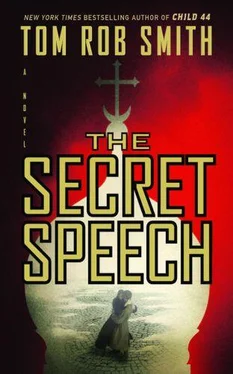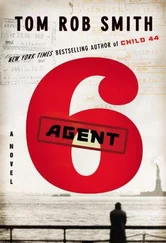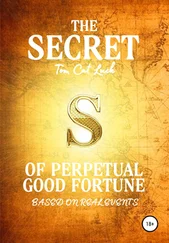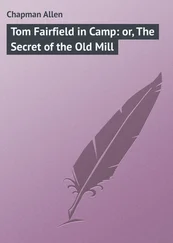Tom Smith - The Secret Speech
Здесь есть возможность читать онлайн «Tom Smith - The Secret Speech» весь текст электронной книги совершенно бесплатно (целиком полную версию без сокращений). В некоторых случаях можно слушать аудио, скачать через торрент в формате fb2 и присутствует краткое содержание. Жанр: Триллер, на английском языке. Описание произведения, (предисловие) а так же отзывы посетителей доступны на портале библиотеки ЛибКат.
- Название:The Secret Speech
- Автор:
- Жанр:
- Год:неизвестен
- ISBN:нет данных
- Рейтинг книги:5 / 5. Голосов: 1
-
Избранное:Добавить в избранное
- Отзывы:
-
Ваша оценка:
- 100
- 1
- 2
- 3
- 4
- 5
The Secret Speech: краткое содержание, описание и аннотация
Предлагаем к чтению аннотацию, описание, краткое содержание или предисловие (зависит от того, что написал сам автор книги «The Secret Speech»). Если вы не нашли необходимую информацию о книге — напишите в комментариях, мы постараемся отыскать её.
The Secret Speech — читать онлайн бесплатно полную книгу (весь текст) целиком
Ниже представлен текст книги, разбитый по страницам. Система сохранения места последней прочитанной страницы, позволяет с удобством читать онлайн бесплатно книгу «The Secret Speech», без необходимости каждый раз заново искать на чём Вы остановились. Поставьте закладку, и сможете в любой момент перейти на страницу, на которой закончили чтение.
Интервал:
Закладка:
— Patriarch Krasikov is a good citizen.
Lazar shook his head, refusing to believe it. The patriarch was an informer. His protégé was a spy sent to him by the highest religious figure. He’d been sacrificed to the State just as the Church of Sancta Sophia had been sacrificed. He was a fool, warning others to take care, preaching caution when standing beside him, taking notes, was an MGB officer.
Nikolai stepped forward:
— Where are the remaining papers?
Leo gestured at the altar:
— Underneath.
Three agents pushed it aside, revealing the trunk. Nikolai asked:
— Did he give you any other names?
Leo answered:
— Martemian Syrtsov. Artiom Nakhaev. Niura Dmitrieva. Moisei Semashko.
He caught sight of Lazar’s face: shock turned to disgust. Leo stepped up to him:
— Keep your eyes on the floor!
Lazar didn’t turn away. Leo pushed his face down:
— Eyes on the floor!
Lazar lifted his head again. This time Leo punched him. Slowly, with his lip split open, Lazar lifted his head, dripping blood, looking up at him, disgust mingled with defiance. Leo replied, as if Lazar’s eyes had asked him a question:
— I am a good man.
Holding his mentor by the hair, Leo didn’t stop, punch after punch, continuing mechanically like a wind-up toy soldier, repeating the same action over and over until his knuckles hurt, until his arms ached and the side of Lazar’s face turned soft. When he finally stopped and released him, Lazar slumped to the floor, blood pooling around his mouth, shaped like a speech bubble.
Nikolai hung an arm around Leo’s shoulder, watching as Lazar was carried out, leaving a trail of blood from the altar to the door. Nikolai lit a cigarette.
— The State needs people like us.
Numb, Leo wiped the blood on his trousers, remarking:
— Before we go I’d like a moment to check the church.
Nikolai accepted the proposal at face value.
— A perfectionist, that’s good. But hurry up. Tonight we get drunk. You haven’t had a drink in two months! You’ve been living like a monk!
Nikolai laughed at his own joke, patting Leo on the back before heading out. Alone, Leo walked to the displaced stone altar, staring into the hole. Caught between the side of the trunk and the earth wall there was a single sheet of paper. He reached down, picking it up. It was a page of music. His eyes ran across the notes. Deciding that it would be better not to know what had been lost, he raised the sheet above the flame of a nearby candle, watching the paper turn black.
SEVEN YEARS LATER
MOSCOW
12 MARCH 1956
MANAGER OF A SMALL ACADEMIC PRINTING PRESS, Suren Moskvin had become renowned for producing textbooks of the poorest quality, using ink that smeared and the thinnest paper, all held together with a glue spine that began to shed pages within hours of opening. It wasn’t that he was lazy or incompetent. Far from it, he’d start work early in the morning and finish late at night. The reason the books were so shabby was due to the raw materials allotted by the State. While the content of academic publications was carefully monitored, they were not a resource priority. Locked into a quota system, Suren was forced to produce a large number of books from the lowest grade of paper in the shortest period of time. The equation never changed and he was at its mercy, acutely embarrassed that his reputation had sunk so low. There were jokes — with ink-stained fingers, students and teachers quipped that Moskvin’s books always stayed with you. Ridiculed, he’d been finding it difficult getting out of bed. He wasn’t eating properly. He was drinking throughout the day, bottles stashed in drawers, behind bookshelves. Aged fifty-five, he’d discovered something new about himself: he didn’t have the stomach for public humiliation.
Inspecting the Linotype printing machines, brooding over his failures, he noticed a young man standing at the door. Suren addressed him defensively:
— Yes? What is it? It’s not normal to stand there unannounced.
The man stepped forward, in typical student attire, a long coat and a cheap black scarf. He was holding a book, outstretched. Suren snatched it from his hands, bracing himself for more complaints. He glanced at the cover: Lenin’s The State and Revolution . They’d printed a new volume only last week, distributed a day or so ago, and this man, it would seem, was the first to spot something amiss. A mistake in a seminal work was a grave matter: during Stalin’s rule it would be enough to warrant arrest. The student leaned forward and opened the book, flicking to the front. Printed on the title page was a black-and-white photo. The student commented:
— The text at the bottom says it’s a photo of Lenin but… as you can see…
The photo was of a man who looked nothing like Lenin, a man standing against a wall, a stark white wall. His hair was wild. His eyes were wild.
Suren slammed the book shut and turned to the student:
— You think I could have printed one thousand copies of this book with the wrong photo! Who are you! What is your name! Why are you doing this? My problems are due to the limits of my materials, not carelessness!
Pushed back, the book jabbed at his chest, the scarf around the student’s neck came loose, revealing the edge of a tattoo. The sight made Suren pause. A tattoo was incongruous with the otherwise typical appearance of a student. No one, except the vory , the professional criminals, would mark their skin in such a way.
With the impetus taken out of Suren’s indignation, the man exploited his hesitation and hurried out. Halfheartedly, Suren followed, still holding the book, watching the mysterious figure disappear into the night. Uneasy, he shut the door, locking it. Something bothered him: that photograph. He took out his spectacles, opened the book, and scrutinized the face a little more closely: those terrified eyes. Like a ghost ship slowly emerging from dense sea fog, the identity of the man appeared to him. His face was familiar. His hair and eyes were wild because he’d been arrested and dragged from his bed. Suren recognized the photograph because he had taken it.
Suren hadn’t always run a printing press. Previously, he’d been employed by the MGB. Twenty years of loyal service, his career with the secret police had spanned longer than many of his superiors. Fulfilling a variety of banal tasks — cleaning cells, photographing prisoners — his low rank had been an asset and he’d been savvy enough not to push for more responsibility, never getting noticed, evading the cyclical purges of the upper echelons. Difficult things had been demanded of him. He’d done his duty unswervingly. Back then he’d been a man to be feared. No one made jokes about him. They wouldn’t have dared. Ill health had forced him to retire. Though well remunerated and comfortable, he’d found idleness impossible. Lying in bed with no purpose to his day, his mind had wandered, drifting over the past, remembering faces like the one now stuck into this book. The solution was to remain busy, appointments and meetings. He needed an occupation. He didn’t want to reminisce.
Closing the book, he slipped the volume into his pocket. Why was this happening today? It couldn’t be mere coincidence. Despite his failure to produce a book or journal of any quality, he’d unexpectedly been asked to publish an important State document. He hadn’t been told the nature of the document. However, the prestige of the assignment meant high-quality resources — good paper and ink. Finally he’d been given the opportunity to produce something he could be proud of. They were to deliver the document this evening. And someone with a grudge was trying to undermine him just as his fortunes were about to change.
Читать дальшеИнтервал:
Закладка:
Похожие книги на «The Secret Speech»
Представляем Вашему вниманию похожие книги на «The Secret Speech» списком для выбора. Мы отобрали схожую по названию и смыслу литературу в надежде предоставить читателям больше вариантов отыскать новые, интересные, ещё непрочитанные произведения.
Обсуждение, отзывы о книге «The Secret Speech» и просто собственные мнения читателей. Оставьте ваши комментарии, напишите, что Вы думаете о произведении, его смысле или главных героях. Укажите что конкретно понравилось, а что нет, и почему Вы так считаете.












